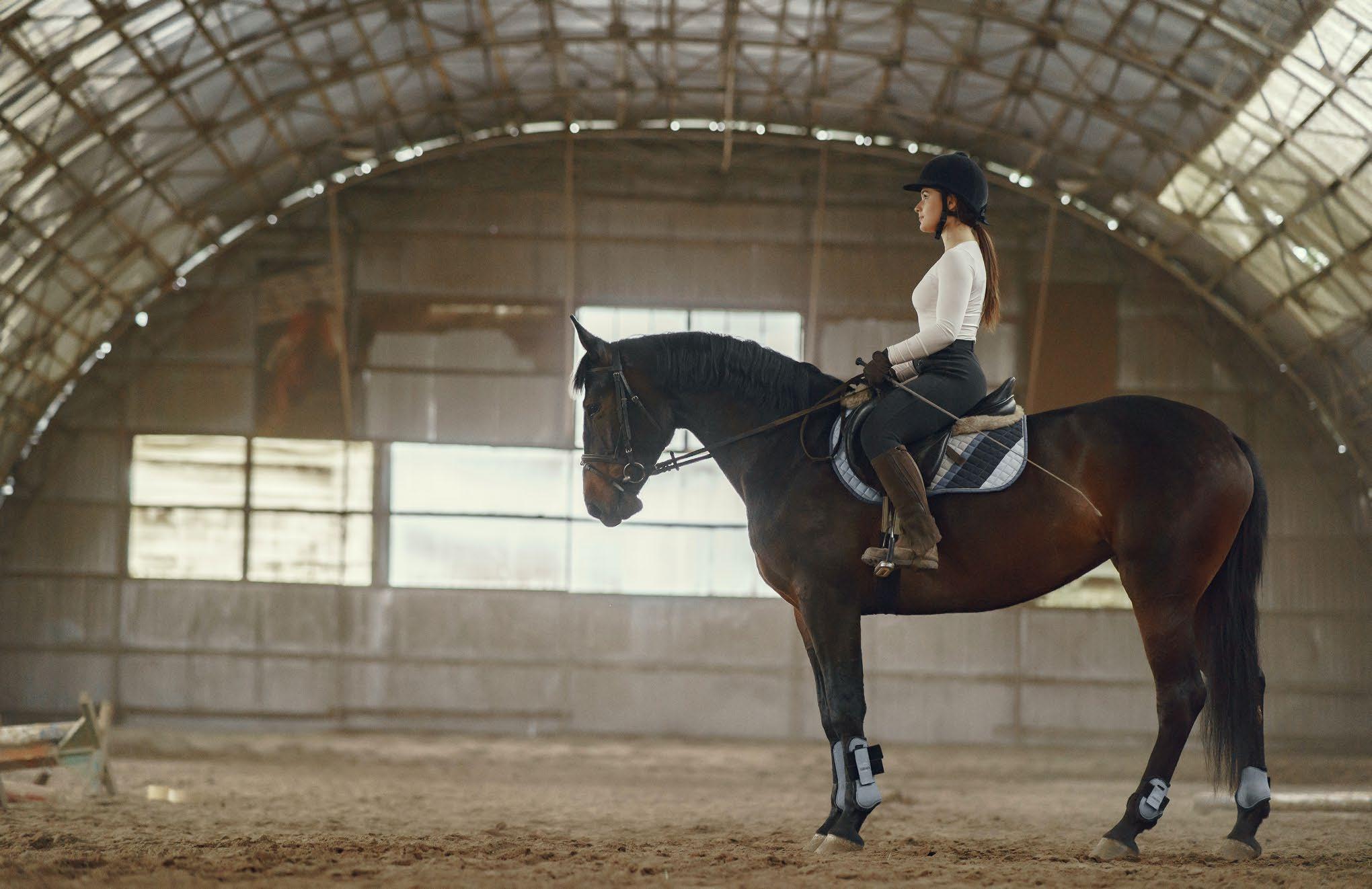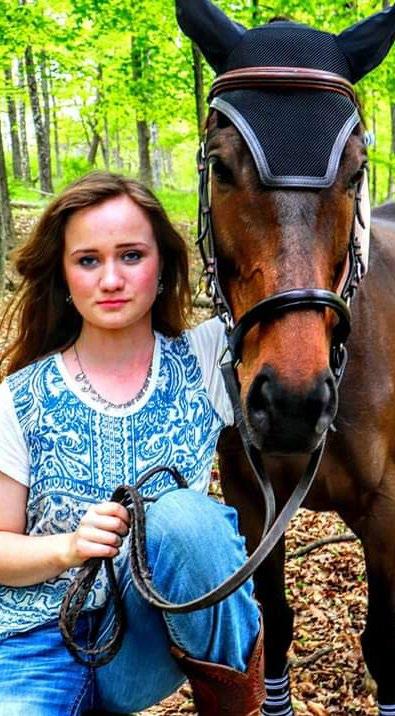
4 minute read
Branding 101:
Are You an Instructor, Coach, or Trainer?
Written By Shya Beth
Are you an instructor, coach, or trainer? This might seem like a question with an obvious answer: “All of the above!”. However, while all three terms refer to people who teach others, there are distinct differences. When it comes to labeling yourself as an instructor, coach, or trainer, each overlaps, but it’s important to know the difference and present yourself accordingly.
Let’s dive into what’s what, or more like, who’s who:
Instructor: The instructor’s focus is generally completely on the rider and developing the rider’s skills. Regardless if their student is showing on the A circuit or pops in for weekly lessons or even less frequently. The goal for the instructor is usually to “instruct” without the collaborative basis that a trainer would use, which is useful when students are starting out and are in need of clear-cut instruction in order to ride correctly. Instructors often work within a pony club or riding school setup, either on their own, with a school or college, or working for another instructor.
Trainer: Unlike instructors, trainers tend to focus more on “training” the horse and use their own custom, tried-and-true method of training their clients horses. That’s not to say trainers do not actively train riders just as much as they do horses, but their methods can be seen as more collaborative than the stricter approach of instructors. Trainers are typically actively competing or retired from the sport, after years of honing their skills through show horses and producing horses for sale.
Coach—Coaches tend to be a complete mixture of the two above, but reserved for riders who are activity completing and have the goal to advance to larger competitions. A riding coach will be nearly completely focused on competition geared clients and preparing them to win. Often retired from competing at the highest levels of the sport themselves, coaches share their experience from decades of practice—and winning.
This is not a strict guide, and many times different instructors will align more with the definition of coaches or trainers. However, it opens up a discussion of what you want your career to look like, what clients you would like to work with, and want clients can expect when working with you. Regardless of anything…
A deep understanding of riding is essential.
Many riding instructors teach their students at a very high level, and many instructors work with a string of school horses that their students learn on. While most instructors are employed rather than running their own establishment, trainers regularly teach their clients on their own horses and guide their clients through the horse shopping process.
The trainer tackles the objective of improving either the horse on its own or the horse and rider together. There has been growing discourse within the horse world for a number of years, arguing the point that trainers have an obligation to teach riders how to train their own horses, without relying solely on the trainer to “fix” and get the horse schooled before the rider gets on. It’s an important discussion, as there is a growing number of riders but not many that can instruct or train. To be a horseman or woman is to be a rider, but to be a rider is not to be a well-rounded horseman.
Another divergence between trainers and instructors is that instructors tend to clear the path for their students to focus solely on their riding skills and be able to progress from beginner to intermediate to a seasoned rider. Meaning that when horses need more time in the saddle for training or discussions about different tack to try and used to better allow the horse to follow the commands, students are generally not included in the discussion. Whereas a trainer may involve the rider, not only as it is often times their horse, but as a way to “train” the student and give them more knowledge on the training aspect of horses.
Coaches can sometimes work in tandem with trainers on the same student. Either as part of the same stable or coming together from different areas to help the student succeed, coaches take what is already there and fine tune it for the show ring. It’s important for both the trainer and coach to be in direct contact and actively go over the student’s rounds and results, not just talk solely with the student. Keeping a clear, simple plan for helping the rider achieve his or her goals in the ring requires clear communication amongst his or her team.
Oftentimes, coaches and trainers are the same person, just wearing different hats. There’s nothing incorrect with saying you are both an instructor, trainer, coach, or all three, or two! It’s completely up to your goals, ambitions, and lifestyle as to which path is correct for you.
Define your Goal, Then Focus on your Clients
Defining what and who you want to be as an equestrian professional—coach, instructor, trainer, or some mix of them— lays the foundation for the clients you want to attract to your business. A rider interested in riding only for pleasure and not competitively would most likely not want to work with a coach who travels to shows each weekend, and a rider whose goals are to travel the country competing would likely not be a fit with an instructor whose clients do not travel extensively to horse shows.
Competition training requires its own mindset, therefore, it is easier when the student’s goal is to progress as a rider for pleasure without the constant pressure or polishing that the show ring expects. You can give your students the space they need to make mistakes, reflect, and reinforce the skills needed to progress. Either way, having compassion for students who are learning (regardless of whether they are competing or not) will help them build the confidence in themselves and their skills that they need in order to enjoy their time in the saddle.
About the author:
Shya Beth is a rider, artist writer and all around horse lover based in New Jersey, USA. Whether creating horses in art, riding in the fields on her farm or writing about horses, horses are a huge aspect of her life and inspire her every day.











